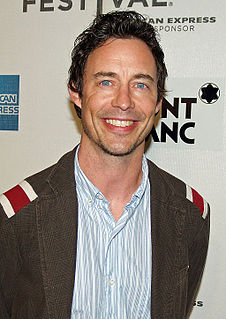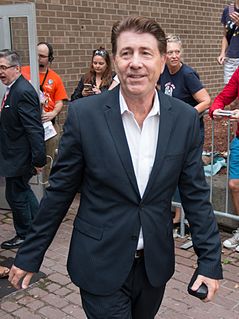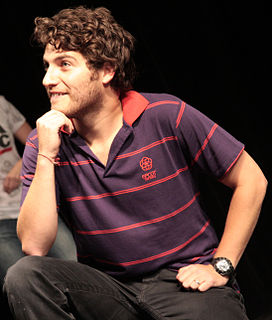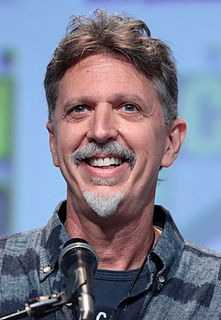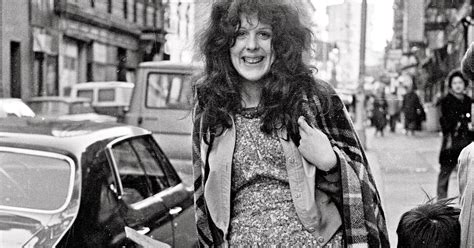Top 622 Episodes Quotes & Sayings - Page 11
Explore popular Episodes quotes.
Last updated on April 20, 2025.
I wanted to move on. I wanted to do acting. The next thing I did after [MADtv] was a good hybrid of that. I did this show with Bob Odenkirk and Derek Waters (creator of Comedy Central's "Drunk History") and it was a little homegrown thing that we shot and then we sold it to HBO. We made a pilot and HBO didn't pick it up, but then we made all these webisodes. This was before streaming stuff online made any sense. (The episodes are available on YouTube). Nobody even knew how to watch things on the internet.
Twenty or thirty years ago, in the army, we had a lot of obscure adventures, and years later we tell them at parties, and suddenly we realize that those two very difficult years of our lives have become lumped together into a few episodes that have lodged in our memory in a standardized form, and are always told in a standardized way, in the same words. But in fact that lump of memories has nothing whatsoever to do with our experience of those two years in the army and what it has made of us.
Some TV shows are like really good novels in that there are enough episodes that you start to have your own feelings about how the characters should act. When the scriptwriters go slightly wrong, when they make the character make a left turn that he or she wouldn't do, you know enough about the characters to say, "No, that's not what she would do there. That's wrong." You can actually argue with a TV show in a way that you can't do as much with movie - you inhabit a TV show in the way you inhabit a novel.
There were a lot of lessons of production to be learned. On the page, the biggest thing you learn on any TV show is how to write to your cast. You write the show at the beginning with certain voices in your head and you have a way that you think the characters will be, and then you have an actor go out there, and you start watching dailies and episodes. Then, you start realizing what they can do and what they can't do, what they're good at and what they're not so good at, how they say things and what fits in their mouth, and you start tailoring the voice of the show to your cast.
Wray Nerely, the character in Con Man, he actually had a role in Rogue One, but he got cut. It sucked. John Swartz, the producer, is a big fan of Con Man. I even got to screen Con Man while we were shooting Star Wars. They had a theater there, and they let me screen one of the little 10-minute episodes for everyone. What sucked was I had to follow Star Wars.
I think most people who were involved with television will tell you, if given a season or given a 13-episode order and getting those episodes on the air, and if viewers don't come, I think most people will tell you they'd walk away. They feel they were given a fair shake, and if viewers didn't come, they didn't come.
The universe has fascinated mankind for many, many years, dating back to the very earliest episodes of Star Trek, when the brave crew of the Enterprise set out, wearing pajamas, to explore the boundless voids of space, which turned out to be as densely populated as Queens, New York. Virtually every planet they found was inhabited, usually by evil beings with cheap costumes and Russian accents, so finally the brave crew of the Enterprise returned to Earth to gain weight and make movies.
People say that you want to be varied in your career, and I've done so many things and am very appreciative. But, the one thing I've never done and wanted to do was to be a regular on a TV show, where you get 22 weeks of the year to develop and play a character. I've done arcs of five or eight episodes on shows, but I'd like to have a character that's rich enough and deep enough to want to explore and live with for a few years. Playing the same character, but doing different scenes seems very exciting to me.
I love things that are brave enough to be nakedly about what our lives are actually built of, when you're wild about someone, or you love something, or you're a fool, or you embarrass yourself. And I don't think the answer is cynicism. Cynicism is not the cure for sentimentality. Cynicism is its own form of sentimentality. For example, I tried to watch Breaking Bad. After three episodes, I thought, I don't like this guy. I don't care about him. But you can see why people tell themselves that they think this is real. But real doesn't mean bad.
Sports is a perfect activity in which to see streaks and cycles, organizational and otherwise, in action - and to watch confidence build or erode. There are repeated episodes of performance with similar rules and clear winners or losers. I added team sports to my studies of business because there are excellent parallels to work groups in the performance of sports teams and also excellent parallels to larger, more complex businesses or organizations in the strategy, structure, and culture surrounding any particular team.
How would you describe the difference between modern war and modern industry-between say, bombing and strip mining, or between chemical warfare and chemical manufacturing? The difference seems to be only that in war the victimization of humans is directly intentional and in industry it is "accepted" as a "trade-off." Were the catastrophes of Love Canal, Bhopal, Chernobyl, and the Exxon Valdez episodes of war or of peace? They were in fact, peacetime acts of aggression, intentional to the extent that the risks were known and ignored.
Even the most loyal viewers of a show would only watch one out of three episodes. As someone who made television, I always found that hard to believe because you want to believe people who love your show are watching every episode, but statistically it was true that people who considered themselves the most loyal viewers were only watching one out of three.
There just isn’t a weak season of 'Breaking Bad.' There’s just superior work, a sprint toward evil that turned into a marathon. But like all big-talker shows that bring their heavy cargo in for a rough and breathlessly observed landing, 'Breaking Bad' didn’t quite leave itself enough runway to satisfactorily end some of its better story lines, especially once the chronology gap closed up between the flash-forwards from last year’s episodes and Sunday night’s conclusion. One could easily argue that there was just too much left to do in this one episode.
Symbols are specific acts or figures, while myths develop and elaborate these symbols into a story which contains characters and several episodes. The myth is thus more inclusive. But both symbol and myth have the same function psychologically; they are man's way of expressing the quintessence of his experience - his way of seeing his life, his self-image and his relations to the world of his fellow men and of nature - in a total figure which at the same moment carries the vital meaning of this experience.
The point of recapitulation in the first movement of Beethoven's Ninth Symphony unleashes one of the most horrifyingly violent episodes in the history of music....The point is not to hold up Beethoven as exceptionally monstrous. The Ninth Symphony is probably our most compelling articulation in music of the contradictory impulses that have organized patriarchal culture since the Enlightenment. Moreover, within the parameters of his own musical compositions, he may be heard as enacting a critique of narrative obligations that is...devestating.
When we were doing 'The West Wing,' the hardest thing about doing 'The West Wing' was being compared to yourself. You go out there and want every episode to be as good as your best episode. I wrote 88 episodes of 'The West Wing,' and when you do that, one of them is going to be your 88th best, so your 88th best better be pretty good.
Those rosy memories we all share are actually memories from our favorite TV shows. We've confused our own childhoods with episodes of "Ozzie and Harriet," "Father Knows Best," and "The Brady Bunch." In real life, Ozzie had a very visible mistress for years, Bud and Kitten on "Father Knows Best" grew up to become major druggies, and Mom on "The Brady Bunch" dated her fifteen-year-old fictional son.
Not that my life has been so crazy and exciting but, it just seems like if I can bring more of myself to the role. It's going to help keep it spontaneous and exciting, instead of thinking in terms of this box of a human that I have to slip myself into every week, which I tend to do more when I'm shooting a movie. On a television show, this is all kind of still new to me, doing many episodes of something, so I want to try to keep it as fresh and close to home as possible, so it doesn't get stale and I still like it every day.
I absolutely am a big Call of Duty fan. Every time a new Call of Duty comes out – I never play the games online, but I play the solo version super fast. My family knows not to interrupt me the day they come out, they know it's a sacred date for me. I think my favorite visually, of all of the Call of Duty games -- even if it's not as sassy and high tech -- is World at War because. That game has some really incredible episodes in Berlin and the Japanese fields. It's really quite arresting for me, visually, and it was very immersive. But I love Modern Warfare, too.
Looking back six years ago when I had just come from 'The Office' to 'The Mindy Project' and what I was trying to say back then. I feel like we don't revisit our younger idealistic selves, you just get in this pattern of churning these episodes out. Now I was like, "Let's try and get in my mind back then," because my life personally has changed so much, too. I just thought, "What was I trying to say? And now can I make it look like it was all part of one larger story."
We are not meant to stay wounded. We are supposed to move through our tragedies and challenges and to help each other move through the many painful episodes of our lives. By remaining stuck in the power of our wounds, we block our own transformation. We overlook the greater gifts inherent in our wounds - the strength to overcome them and the lessons that we are meant to receive through them. Wounds are the means through which we enter the hearts of other people. They are meant to teach us to become compassionate and wise.





